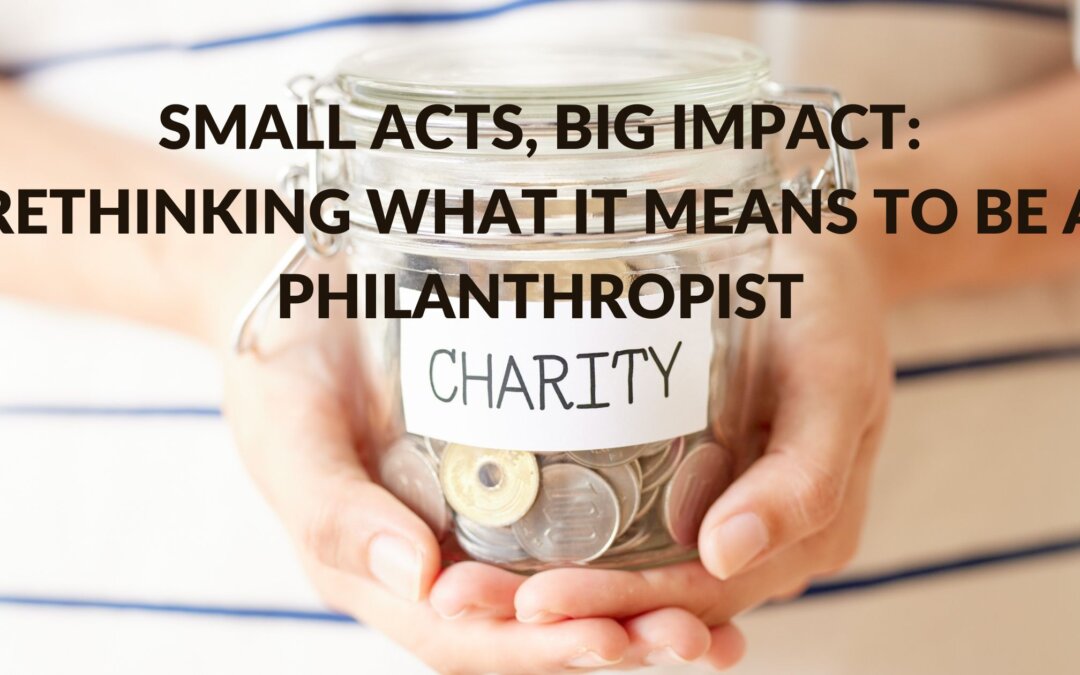When you hear the word “philanthropy,” what comes to mind? Billionaires signing giant checks? Fancy galas and foundation boards?
Sure, that’s one version. But it’s not the only one. At its core, philanthropy simply means the desire to promote the welfare of others — and that doesn’t require millions of dollars or a nonprofit title. It requires heart, consistency, and a willingness to show up.
The Myth of “Big Giving”
There’s a misconception that you need to be wealthy to make a difference. But history tells a different story. Some of the most powerful movements — from community gardens to education equity — were built by everyday people investing their time, skills, and compassion.
Philanthropy isn’t about the size of your wallet. It’s about the size of your impact.
Ways to Practice Everyday Philanthropy:
- Give Time: Volunteering a few hours a month at a shelter or tutoring program makes a tangible difference.
- Use Your Skills: Are you good at graphic design, accounting, or social media? Many small nonprofits would love your help.
- Give Consistently: A $10 monthly donation may not seem like much, but over a year, it adds up — and helps organizations plan ahead.
- Raise Awareness: Share causes that matter to you. Your voice has value.
- Build Local: Support small businesses, mentor a student, or donate goods to a neighbor in need.
The Ripple Effect
Small actions often inspire others to follow suit. One person donating a meal can lead to a community food drive. One teen sharing their mental health story can launch an awareness campaign. It all starts with one.
How to Find Your Philanthropic Fit:
- What causes move you emotionally?
- What skills or resources do you have to share?
- What problems in your community could use extra hands or voices?
Philanthropy is most powerful when it’s personal. Don’t just write checks — write stories, show up, and shape change.
Final Thought
You don’t need to be rich to be a philanthropist. You just need to care — and act. In a world obsessed with “big,” don’t underestimate the power of “small.” Because when it comes to kindness and community, little things grow big fast.

